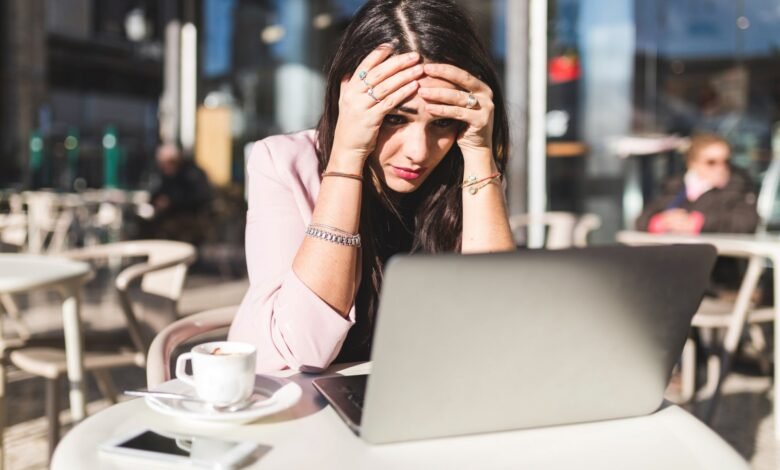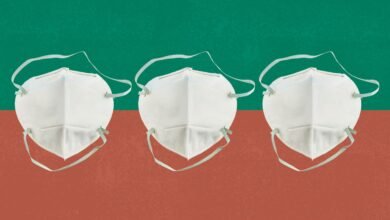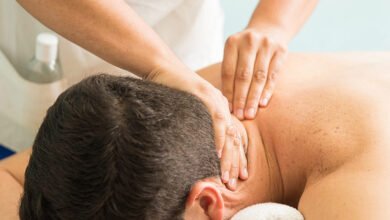Are You Always Anxious? Here’s How to Find Relief.

Have you ever been worried that something was about to go wrong? Or concerned about a specific event, to the point where it caused significant stress or anxiety?
The fact that everyone undergoes anxiety from time to time might seem normal, but for some, it is more frequent and severe. In any case, anxiety is not to be taken lightly because it can significantly impact a person’s mental and physical wellbeing.
Anxiety symptoms – unease, dread, terror, or an unexplained sensation of impending doom — can be excruciating. Whether worry manifests as an upset stomach, heart palpitations, a pervasive nervous tension, or even a panic attack, the discomfort and distress can be exceedingly difficult.
We are not discussing daily anxiety here, but rather clinical anxiety – the kind that may be overwhelming and, at times, devastating. According to the Anxiety and Depression Association of America, anxiety is defined as “persistent and excessive worry” in which individuals lose their rational perspective and “expect the worse, even when there appears to be no reason to be concerned.”
Chronic or severe symptoms may be an indication of a generalized anxiety disorder (GAD), which affects almost 40 million individuals in the United States and 1 in every 13 people worldwide, according to the World Health Organization (WHO). Fortunately, there are effective therapies and drugs available, and doctors and healthcare professionals can evaluate the most appropriate treatment options for you.
Regardless of where we fall on the scale, there are natural anxiety cures worth investigating, either on their own or in conjunction with conventional therapy (though if you are getting professional care, talk to your doctor first). Several are lifestyle adjustments that, over time, can help reduce anxiety, such as a regular meditation practice, physical activity, time spent outside, or a few food swaps. Others, such as deep breathing and distraction strategies, can provide immediate relief from worry when the mind sends an SOS.
We can improve our emotional regulation and train our brain to perceive life from a more balanced, less scared viewpoint with the correct skills and lifestyle modifications. Here’s how to alleviate anxiety organically and mindfully.
How to alleviate anxiety: 5 strategies for immediate calm
Take several slow, deep breaths.
Our respiration becomes quick and shallow when we are nervous. By boosting the body’s relaxation response, which lowers our pulse rate and blood pressure, deep belly breathing helps to alleviate anxiety. It’s a really effective strategy, as we cannot breathe deeply and be concerned at the same time. There are numerous versions to try, including the following straightforward exercise:
Deeply inhale for a count of four. For a count of four, hold your breath. Exhale for four counts. Rep many times more.
Take a walk.
Exercise is one of the most effective anxiety treatments available, both instantly and over time. Going for a walk helps you forget about your troubles and relieves muscle tension. On your way out, grab your headphones or earbuds: studies suggest that listening to music has its own relaxing impact.
Long-term, consistent exercise stimulates the release of feel-good neurochemicals in the brain, enhancing resistance to turbulent emotions. It improves self-esteem and mood, and we don’t have to run a marathon to reap the benefits. Anything that gets us moving counts: car washing, hiking, gardening, or a pick-up game. Thirty minutes, three to five days a week, has been shown to considerably relieve anxiety symptoms, but even ten minutes can benefit.
Take a cup of chamomile or green tea.
Chamomile, commonly used as a sleep aid, has a component called Matricaria recutita, which binds to the same brain receptors as Valium. Chamomile’s sedative properties could potentially be attributed to flavonoid apigenin. In one study, individuals with a generalized anxiety disorder (GAD) who received chamomile pills (1.2 percent apigenin) for eight weeks saw a substantial reduction in anxiety symptoms when compared to patients who received a placebo. (Despite enhanced quality control, herbal supplements are not regulated by the FDA in the same way that medicines are, so consult your doctor before taking any supplement.)
Green tea, which has been used to treat depression in Chinese medicine for centuries, includes the amino acid L-theanine, which relaxes stress and lowers blood pressure and muscular tension.
Distract yourself.
Try anything that diverts your focus away from upsetting thoughts or emotions: run your fingers along the edge of your phone, immerse your hands in cold water, or color or sketch on a piece of paper. Distractions function because the brain cannot be in two locations at the same time, and diverting attention to any activity breaks up a series of racing ideas.
Headspace offers a free mini-meditation.
Whatever is causing our anxiety, we may always pause and practice a brief meditation to bring our mind and body back to the present moment.







